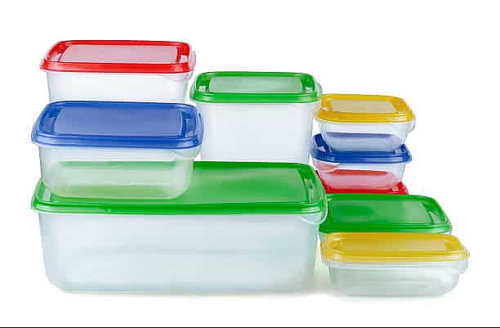There are chemicals in everyday products that can put you at risk for serious health problems like cancer and asthma. These potential ‘killers’ masquerading as household helpers have been around for more than a minute and many of us refuse to part with them.
Now that we’re older, we should follow this rule–when you know better, you do better!
Even though it is impossible to avoid exposure to all harmful environmental products, you can rid your home of these toxins by merely throwing them away and replacing them with safer alternatives. After all, is there anything more important than your health?
1) Ammonia–We all grew up with this must-have cleaner in our homes. Once inhaled, ammonia immediately interacts with moisture in the mucus to form caustic ammonium hydroxide. As a result, inhalation of ammonia vapors may cause irritation of the eyes, nose, skin, throat, and respiratory tract. Exposure to high concentrations of ammonia in the air may lead to lung issues. Ammonia may obstruct the air passage and cause respiratory disorders. Excessive exposure to ammonia may also lead to liver and kidney damage.
2) Plastic food storage containers–Plastic is everywhere! But recent studies have proven that certain harmful chemicals in plastic can leach out into food and beverages especially when exposed to heat (microwave and dishwasher). Plastic restaurant takeout containers, which many people reuse and wash in the dishwasher is also not built for wear and tear.
Many plastic containers are made from chemicals including phthalates which researchers have linked to asthma, attention-deficit hyperactivity disorder, breast cancer, obesity and type II diabetes, low IQ, neurodevelopmental issues, behavioral issues, altered reproductive development and male fertility issues. Switch to glass containers.
3) Nonstick pans–Many nonstick pans contain trace amounts of a chemical called perfluorooctanoic acid (PFOA), which has been shown to cause cancer in laboratory animals. The pans’ non-stick lining can scratch or chip off into your food. Instead, use cast iron or stainless-steel cookware, and natural, non-stick sprays such as olive oil.
4) Antiperspirants–Antiperspirants which use aluminum-based compounds are different from deodorants, which kill odor-causing bacteria in your armpits instead of blocking your pores. There are countless ongoing studies linking aluminum to certain cancers, kidney issues, Alzheimer’s, and other health conditions. Antiperspirants contain aluminum to help you sweat less. Deodorants don’t use aluminum as an ingredient.
The research is mixed on whether the aluminum from antiperspirants can build up in your body. But if you have severe kidney disease, steer clear of antiperspirants! Aluminum-free antiperspirants don’t exist, but if you’re looking to reduce body odor, you can do so without using an antiperspirant. Deodorants are aluminum-free. Avoid aluminum by going the old-fashioned route—arrowroot or cornstarch powders.
You can also try baking soda to keep your underarms dry and odor-free. One study suggests that baking soda may have antimicrobial benefits, which could potentially mean that it has the ability to fight off odor-causing bacteria under your arms. Make a baking soda deodorant paste:
- Mix about 1/4 tsp. baking soda with a small amount of lukewarm water in a bowl until it forms a paste.
- Apply the paste to your underarms, gently patting it onto your skin with your fingertips.
- Make sure the paste is completely dry before getting dressed.
5) Air fresheners–While they may be called “air fresheners,” the name is somewhat misleading. Plug-in scents or synthetically scented candles many contain chemicals called phthalates, which have been linked to everything from cancer to respiratory issues (see above under ‘plastic food storage containers’). Instead, choose candles made with essential oils and flowers that are fragrant like gardenias, lilies, and freesia.
Try placing small bowls of baking soda and white vinegar around the house as odor absorbers. Air filtering plants like the spider plant, golden pothos, the snake plant, and the peace lily can improve indoor air quality as these plants literally filter the air naturally. On good outdoor air quality days, open up the windows to bring in new air even in the winter.
6) Cosmetics–From shampoo to lipstick, the average woman applies up to 12 personal care items, and the average man up to six, to their skin each day. That adds up to roughly 126 unique ingredients, according to the Environmental Working Group, a public health advocacy organization. Opt for cosmetics with mineral-based pigments and natural oils. Choose soaps and shampoos free of synthetic fragrances and chemicals such as triclosan, which has been found in animal studies to alter hormone regulation.











